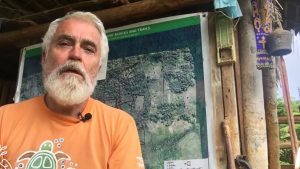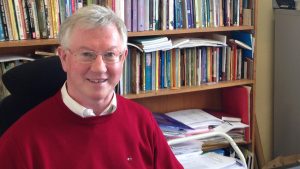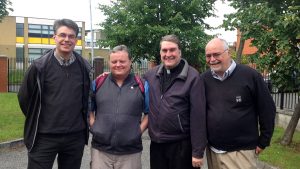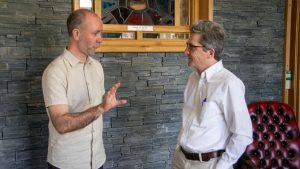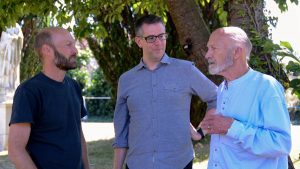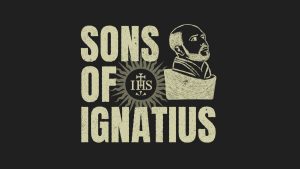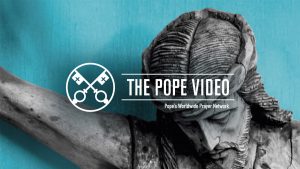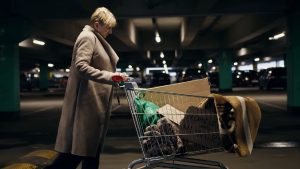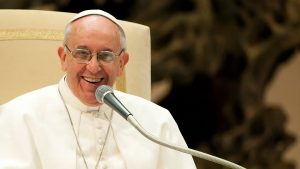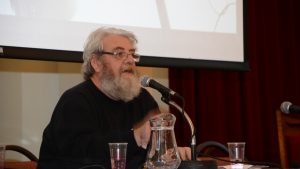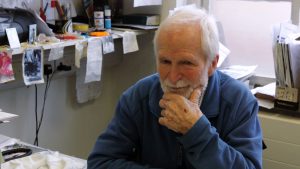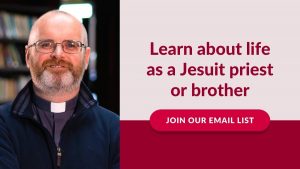“Creativity, daring and great humility”
 ‘Jesuit mission today’ was the issue addressed by Fr Adolfo Nicolas SJ, when he spoke to his fellow Jesuits, their co-workers and colleagues, in Gonzaga College on Sat Sept 12th. In his introduction to the Jesuit Fr General’s talk, Irish Provincial John Dardis SJ told those gathered that there were unprecedented challenges facing the Irish Church today. “But we all can make a difference if we respond to those challenges with creativity , discernment and courage”. Fr Nicolas outlined some of the challenges such as rapid change in technology and communications, globalisation and a rise in xenophobia, a pluralism that some choose to intepret as there being no absolutes, and a spreading decline in the influence of relgious belief . He spoke of the profund transition that had been made in Ireland from poverty to plenty and now to potential austerity. All this, allied to the Ryan report and the pending Dublin report, meant that the entire landscape of the church was changing. “Evaluation and change must be done,” he said “and all of you are part of that. And the Gospel mercy and justice for the poor must be preached with renewed vigour and dynamism to people who are angry but also hungry.”
‘Jesuit mission today’ was the issue addressed by Fr Adolfo Nicolas SJ, when he spoke to his fellow Jesuits, their co-workers and colleagues, in Gonzaga College on Sat Sept 12th. In his introduction to the Jesuit Fr General’s talk, Irish Provincial John Dardis SJ told those gathered that there were unprecedented challenges facing the Irish Church today. “But we all can make a difference if we respond to those challenges with creativity , discernment and courage”. Fr Nicolas outlined some of the challenges such as rapid change in technology and communications, globalisation and a rise in xenophobia, a pluralism that some choose to intepret as there being no absolutes, and a spreading decline in the influence of relgious belief . He spoke of the profund transition that had been made in Ireland from poverty to plenty and now to potential austerity. All this, allied to the Ryan report and the pending Dublin report, meant that the entire landscape of the church was changing. “Evaluation and change must be done,” he said “and all of you are part of that. And the Gospel mercy and justice for the poor must be preached with renewed vigour and dynamism to people who are angry but also hungry.”
He then went on to outline four key elements of the Jesuit mission, the first being the univeral nature of the call. Jesuits and their co-workers are called ‘to go where the need is greatest’. He commended the Jesuits present who had spent many years on missionary work in Africa, Japan, China, Hong Kong, and Cambodia. He was happy that the Irish Province was continuing to send its young men on the missions.
In this brief audio extract, Fr General pays tribute to Irish Jesuits’ missionary activity, remarking that “the Irish have always been great travellers”.
[podcast]http://jesuit.ie/audio/0912_1036_Gonzaga_sample.MP3[/podcast]
The second element was being ‘at the frontiers’, a term used by the 35th General Congregation and now being picked up by many religious. He said the frontiers could be geographical or less obvious. They needed to be discerned and in his opinion demanded three important qualities: creativity, daring and great humility! He said that every Jesuit work, be it in justice, spirituality, education, or whatever, should ask the question, “How are we at the frontiers?”
The third element was the pursuit of dialogue with different cultures and religions. He pointed out that this was something the present Pope modelled in his visits to various countries.
He spoke of the need to be sensitive to the nuance of the language that we use in such dialogue. Often people speak to each other using the same words which have very different meanings to each individual. Citing a story from his own life, Fr Adolfo recalled meeting a Japanese man who did not recognise him at first as a priest , because he was wearing a shirt and tie. After some time , when he realised he was talking to a Jesuit, he exclaimed ,”But you don’t really believe in God, do you?”. Pausing before replying Fr Adolfo said, “Not the God you have in mind when you’re asking that question!”
Finally he stressed the importance of the Spiritual Exercises of St Ignatius, the founder of the Jesuits. He said the founder’s principle of ‘finding God in all things ‘ meant that Ignatian spirituality was a particularly suitable one for these times. It took people where they were at and brought them forward when they made the choices. He cited the Jesuit prayer site www.sacredspace.ie, created in Ireland, as an excellent example of this process, and he urged those present to think in a similaraly creative way about how to make the Exercises relevant and accessible to people in all walks of life. “There’s no point expecting a mother with two children to go on an eight-day retreat!”
He urged all present, Jesuits and their non-Jesuit colleagues, to continue to work with each other, as was the case with Jesuits since their foundation. They would only survive and move forward with energy, creativity and imagination if they worked together. It could not be done alone and the stakes were high because “‘There are people who need us, who need God”.


